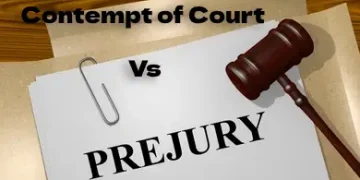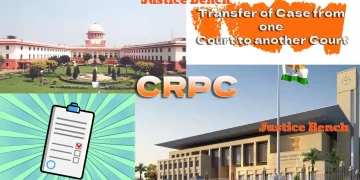Dealing with Money Recovery? Is this a current issue you are grappling with? Perhaps you’ve lent money to individuals in the past, and due to unforeseen circumstances, they failed to repay you.
Alternatively, you might be looking to reclaim funds owed to you by other parties. Rest assured, there is no need for apprehension any longer. You might be curious about ‘how’ and ‘why’.
If you are contemplating initiating a legal action for money recovery, it is crucial to grasp the implications of such a decision. Let’s begin by comprehending the essence of money recovery or a money recovery suit. Subsequently, we will delve into the legal means through which you can recover your funds, explore the money recovery laws in India, and address other pertinent aspects of this process.
What is a Money Recovery Suit?
A legal action for the retrieval of funds stands as a potent and practical method to reclaim a debt from an individual who has defaulted on payment. The civil recourse for money recovery involves initiating legal proceedings against the debtor, a process accomplished by filing a lawsuit in a court with the appropriate jurisdiction.
This legal action can be instituted under Order IV of the Code of Civil Procedure, established in 1908 (CPC).
Limitation Period
The timeframe within which a money recovery suit must be filed is three years from the occurrence of the cause of action. Nevertheless, this duration can be extended, contingent upon the court’s discretion and its ability to condone such extensions.
Where to file Suit for Money Recovery?
After comprehending the concept of a money recovery suit, the subsequent inquiry that might arise is the venue where one can initiate legal proceedings for a money recovery case in India. The jurisdiction for filing a money recovery case is determined by the debtor’s location and the pecuniary limit within which a court has authority.
Territorial Jurisdiction
The pivotal consideration in choosing the venue for filing a case is whether the court possesses territorial jurisdiction over the individual in question. Territorial jurisdiction, as a form of jurisdiction, is constrained by specific geographical boundaries. The court is not empowered to exercise authority beyond these defined territorial limits.
Under the Code of Civil Procedure, 1908, a lawsuit can be initiated within any of the designated territorial jurisdictions:
- The location where the defendant (money defaulter) resides.
- The location where the defendant conducts business or earns income.
- The location where the cause of action arises, either in its entirety or partially.
This pertains to pecuniary jurisdiction, considering whether to file the case in a district court, high court, or supreme court.
Pecuniary Jurisdiction
Pecuniary jurisdiction, which is related to money matters, involves determining whether a court has the authority to hear cases and suits of a particular monetary value. This is contingent upon the amount of money involved in the case. For instance, in Delhi, the pecuniary jurisdiction is as follows:
- District Courts handle suits with amounts ranging from Rs. 1 to Rs. 20,00,000/-
- The High Court deals with suits exceeding Rs. 20,00,000/-
Note: Initially, territorial jurisdiction is established, followed by consideration of pecuniary jurisdiction.
What legal actions can be taken against Money Defaulter?
Now that you have a comprehensive understanding of the term, let’s delve into the legal remedies available against the debtor under the constitution of India.
Primarily, it is crucial to notify the debtor of the outstanding amount through a formal notice. This notice should encompass essential details such as your personal information (name, description, place of residence), particulars of the cause, and other relevant information. However, when engaging expert advocates like LiteM, these details are managed seamlessly.
If the debtor fails to respond to the notice, the next step involves initiating legal proceedings against them. The following sections and acts, about money recovery, are discussed below, outlining the applicable laws in India. Various avenues exist for individuals seeking to recover their funds from defaulters, and it is essential to comprehend the specific laws and legal actions that can be undertaken based on the given circumstances:
Order 37 of CPC(Summary Suit)
Time is of the essence in cases centered around written statements. A widely adopted civil recourse for money recovery is found in Order 37 of the Civil Procedure Code, which mandates a borrower to file a summary suit. In this process, the defaulter is provided a 10-day window from the initiation of the suit and receipt of the summons to respond. Failure to appear within this stipulated period results in the court accepting the validity of the plaintiff’s claims and subsequently ruling in favor of the plaintiff.
Negotiable Instrument Act,1881
This legislation is chiefly relevant when dealing with individuals who have issued a bounced cheque, and your aim is to seek monetary recovery from them. Section 138 of the Act is designed to penalize the issuer of a bounced cheque who lacks the intention to fulfill the payment, thereby holding them criminally accountable alongside the existing civil liability.
Indian Penal Code,1860
Indian laws offer various remedies to creditors who are denied the money rightfully owed to them. Instances where individuals are deceived of their funds constitute a punishable offense as per the Indian Penal Code (IPC).
Insolvency and Bankruptcy Code,2016
Actions for recovering debts can be initiated under the Insolvency and Bankruptcy Code, 2016, where defaulters are subject to stringent laws resolved within a specified timeframe (less than a year). The regulations of the Code are relevant to companies, limited liability entities, partnerships, and individuals (excluding financial service providers).
Indian Contract Act,1872
In instances where an individual engages in fraud (Section 17) or misrepresentation (Section 18), or if an indemnifier or guarantor faces financial insolvency, rendering them unable to fulfill the contract, Section 73 of the Indian Contract Act can be invoked. This section allows for the recovery of losses or damages resulting from a breach of contract.
Companies Act,2013
If the defaulting entity is a company, legal action can be initiated under the Companies Act, 2013. These suits may take the form of class action suits, where a group of individuals representing a specific class initiates legal proceedings to recover debts owed to them. Alternatively, in business contexts where debts arise from contractual agreements, suits under the Companies Act can be pursued for debt recovery.
For More articles click here

















